The click-click of the high heels worn by Norwest Venture Partners' Tiba Aynechi, Ph.D., used to be alone in a sea of suits as she walked into a boardroom. But women are now changing the venture capital game and disrupting the boys' club nature—and they're doing it by pulling each other up, one by one.
“There used to be a time I'd walk into a board meeting and people would comment about my shoes,” General Partner Aynechi said in an interview with Fierce Biotech.
As corporate culture and society progresses, women are becoming emboldened to lean into the unique values they can bring to the VC world rather than trying to join the old boys' club.
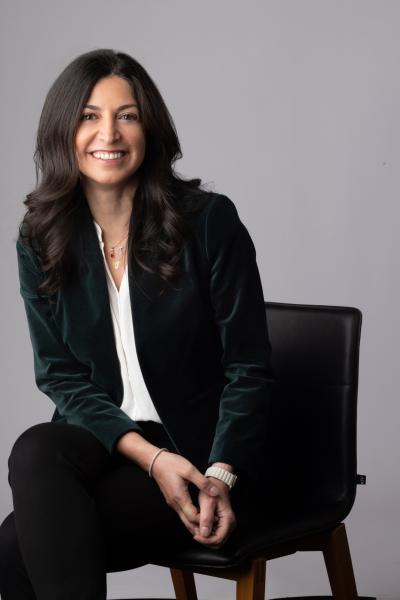
Breakout Ventures co-founder and Managing Partner Julia Moore grew up seeing successful women in the workforce trying to emulate what it looked like to be a man in business. Now, she believes women can and should celebrate their differences from men.
Moore, who is a former Wall Street investor and analyst, wonders if she wouldn't have played things so safely if there had been a clear leadership path carved out by someone like her. Phyllis Whiteley, Ph.D., venture partner with early-stage VC firm Playground Global, said her career path changed a little more than a decade ago when she suddenly saw women taking up board spots or become CEOs. Karen Hong, Ph.D., partner for Novo Holdings, similarly experienced a shift about 10 years ago at a women-in-venture dinner at J.P. Morgan’s annual healthcare conference. It was the first time she had experienced a female-only work environment.
“It was so tangibly different and super fun,” Hong explained. Novo Holdings is a life sciences investment firm that manages the Novo Nordisk Foundation’s assets and is a controlling shareholder of Novo Nordisk and Novozymes. “It was like someone opened the window and there's all this fresh air. And it's so easy. I feel so at ease, like I can be myself.”
Ever since then, Hong said she’s been interested in providing that community for other women.
“I was like, wow, what if I experienced that environment—that comfortable environment—when I was 13 instead of 35? How would that have changed me?”
Let's get lunch
The boys’ club legacy runs deep.
“The first venture investments were made by a bunch of guys who used to get lunch together—they were bankers. On the side, they invested in new startups and during their lunch club they'd have a founder come in and pitch them,” Amee Kapadia, principal at Cantos Ventures, said in an interview.
Those men—Massachusetts Institute of Technology President Karl Compton, Massachusetts Investors Trust Chair Merrill Griswold, Federal Reserve Bank of Boston President Ralph Flanders and Harvard Business School Professor General Georges Doriot—formed the first publicly funded VC firm in 1946, called the American Research and Development Corporation. Today, Doriot is still known as the “father of venture capital.”
Nearly 80 years later, there still aren’t as many women as men in VC leadership. While there aren’t many data sources that break down leadership demographics in the field, a 2021 report from Deerfield Management conducted an analysis of the top healthcare investment firms based on the number of healthcare transactions they took part in. Of the 44 firms examined, women made up only one-fifth of investment professionals. Four firms (9%) didn’t have any female investment professionals at all.
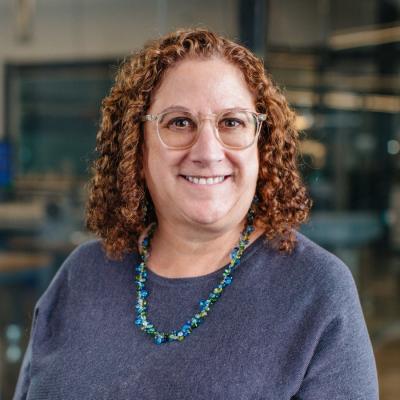
Getting into VC isn't easy, according to Playground Global's Whiteley. The former Roche vet explained that entering the scene at a senior position requires bringing a check to the table.
“People often don't realize that's your money,” Whiteley said. “You have to know the right people and have the cash.”
But to get that far, you have to develop experience at the lower levels first.
“You have to establish a track record—that's kind of the bottom line.” Hong said. “Everyone's going to be like, ‘Have you made your organization money?’”
To make money you have to make deals. And to make deals, you have to be at least a principal. And to be a principal, you need sponsorship and mentorship. Norwest's Aynechi said progress for women tends to stall at the midlevel of their career, so they struggle to break into leadership roles. “The imbalance is at the higher levels,” she said.
It's not that the organization is pushing against women. It's just that women don't get the mentorship. They're not in the club.” — Karen Hong, Ph.D., Novo Holdings
“Let's say the associate level is 50/50,” Hong said, referring to the ratio of women compared to men in VC. “Then as you go to principal, as you get to partner, the women winnow out.”
The “apprenticeship business” requires mentorship to move up from an associate role, which is typically the most junior position in VC, explained Hong. Without those things, women don’t have the opportunity to mature or access capital.
“You're just alone on your path,” said Hong. “It's not that the organization is pushing against women. It's just that women don't get the mentorship. They're not in the club.”
With that said, Hong admits that she has had help to get where she is; “But, you know, they've been men.”
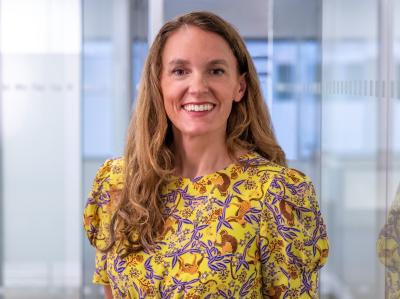
Most of the women pointed to the need for proper training, mentorship and networking—all of which require intentional and continuous effort, Aynechi emphasized.
For Meg Wood, managing director of NYBC ventures and the New York Blood Center’s vice president of ventures and business development, it’s even simpler: Get yourself a board seat. That's the best way to get experience and make connections. Wood is a board observer for Thymmune Therapeutics, KaloCyte and Catena Biosciences.
Deerfield’s 2021 report also examined 140 venture-backed companies and found that nearly half of the companies didn’t have any female board members. The analysis—which included venture-backed companies working in therapeutics, medical devices and diagnostics, healthcare information technology and healthcare services subsectors—found that women held about 10% of director roles. Of the 140 companies analyzed, only six (4%) had boards whose members were at least 50% women.
“Wouldn’t it be amazing to have an all-female board?” Hong wondered. “I've never even seen a board that's 50% female, you know—that's what we want. We want to actually get to parity.”
This is my identity
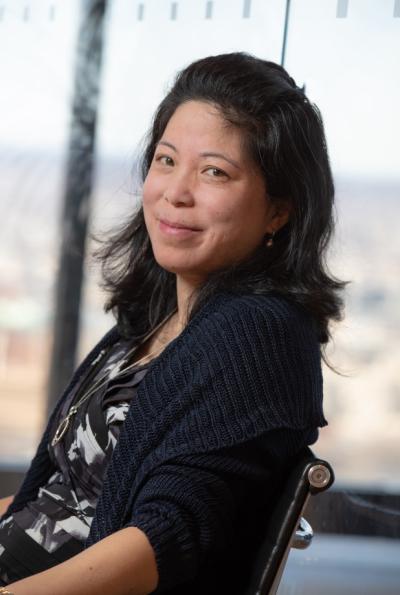
When it comes to recruiting and hiring for VC positions, Vineeta Agarwala, M.D., Ph.D., general partner at Andreessen Horowitz (a16z), believes people should operate with a gender-blind lens, with more emphasis on professional identities. She said her core professional identity is as a physician scientist.
“I don't actually want people to give me any other identity,” Agarwala said. “My identity is my professional identity.”
But even if the goal is to boost diversity, women represent half of the population, so the right candidate is out there.
“You can find a good woman," Hong said.
Cantos Ventures’ Kapadia said people tend to hire from a pool of people in their network. If that network isn’t diverse, the problem cycles.
“I've never really bought that argument,” Kapadia said. “I strongly believe that there's a lot of really strong, smart talent out there that looks like anyone. So, if you are finding that in order to hire a woman you have to lower your standards, you're just not casting a wide enough net.”
NYBC’s Wood often finds that women actually have a more interesting candidacy profile, though she acknowledged the possibility that her own framework may bias her.
“In my experience, at least in the last year or so, women have highlighted incredible strengths,” Wood explained. “Not even just in comparison to men, but just generally speaking, they sort of stand out.”

To boost female board candidacy, Deerfield and healthcare recruiter Oxeon formed a program aimed at reaching parity board representation throughout the healthcare industry. Started in 2015, the program is known as Break into the Boardroom and provides development opportunities for female board candidates to connect them with appropriate board roles.
Venture Forward is another organization looking to improve representation of women, people of color and other underrepresented minorities in VC. Its mission is to help individuals find a growth path in the investment community, a16z's Agarwala explained. The nonprofit was founded by the National Venture Capital Association, for which Agarwala serves on the board.
Hong described a recently revamped associate hiring process at Novo Holdings that blinds the interviewer from a candidate’s personal information in the early stages. In the first round, interviewers can’t see anything about the interviewees—not their name, age, gender or background. Candidates received an example investment opportunity and would answer a set of questions based on the example. The organization would then provide more information to individuals that responded favorably to the questions, later asking for an evaluation of the further information provided—all while still blinded.
“We were really just focusing on their work product, how they think,” Hong explained. “That was the first time we did it and I think we did get more diversity, including more female people that were hired at the associate level.”
Moore said her firm changed its fee structure to create an “on ramp” for people who wouldn’t typically have access to venture. The program, dubbed Alpha LP, was designed for first-time limited partners. LPs are unlike general partners, which are involved in the venture fund they invest in. Instead, LPs are passive investors that make money from liquidity events, like an IPO. VCs typically have a minimum funding requirement for LPs to participate.
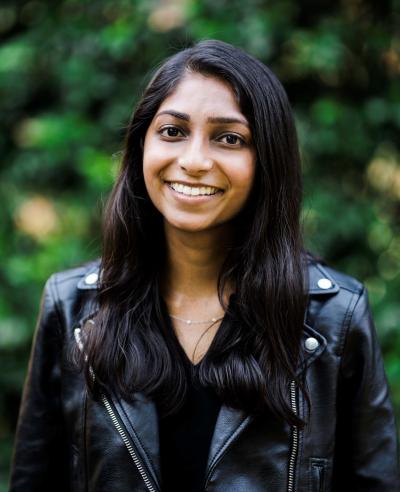
Breakout used to have a $1 million minimum for new investors, which tend to be family offices, fund of funds, foundations and endowments, Moore explained. For its second fund, the firm lowered that minimum to $25,000 for LPs.
“We know a lot of successful women in our field who couldn't write the $1 million minimum check but could write a $25,000 check,” Moore said.
Alpha LP was made so more people could “understand how the club works” and give career-building access and information to a broader range of people. The firm closed its second fund in 2021 at $112.5 million.
Diversity efforts don’t mean reinventing the wheel, either. a16z’s Agarwala underscored that the energy, momentum and foundation is already there, with diversity efforts more action-oriented than ever before. And it's important to acknowledge that the situation has improved—women are taking up space more than ever, but there's still work to be done.
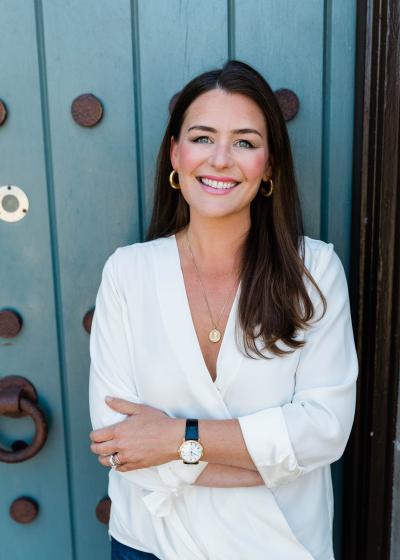
“We live in this very odd time … some of our ideas are so advanced, and some of them are very, very ancient,” Aynechi said. “A lot of people talk about what's not good … it's important also to acknowledge the good and how far we've come."
Hiring and promoting more women brings in more perspectives and subsequently more potential solutions. More diverse organizations expand access to talent, so much so that the practice can have a snowball effect.
“Filling board seats is a mirror pond, right?” Whiteley said. “You call in somebody you really know and you've worked with before. Having that women's network—we all start calling each other.”
The numbers reflect that idea—of the 140 companies Deerfield analyzed, five of the six companies that had boards made up of at least 50% women also had female CEOs.
“We got here by helping each other—not because men don’t want to help, but because they don’t know,” Whiteley said.